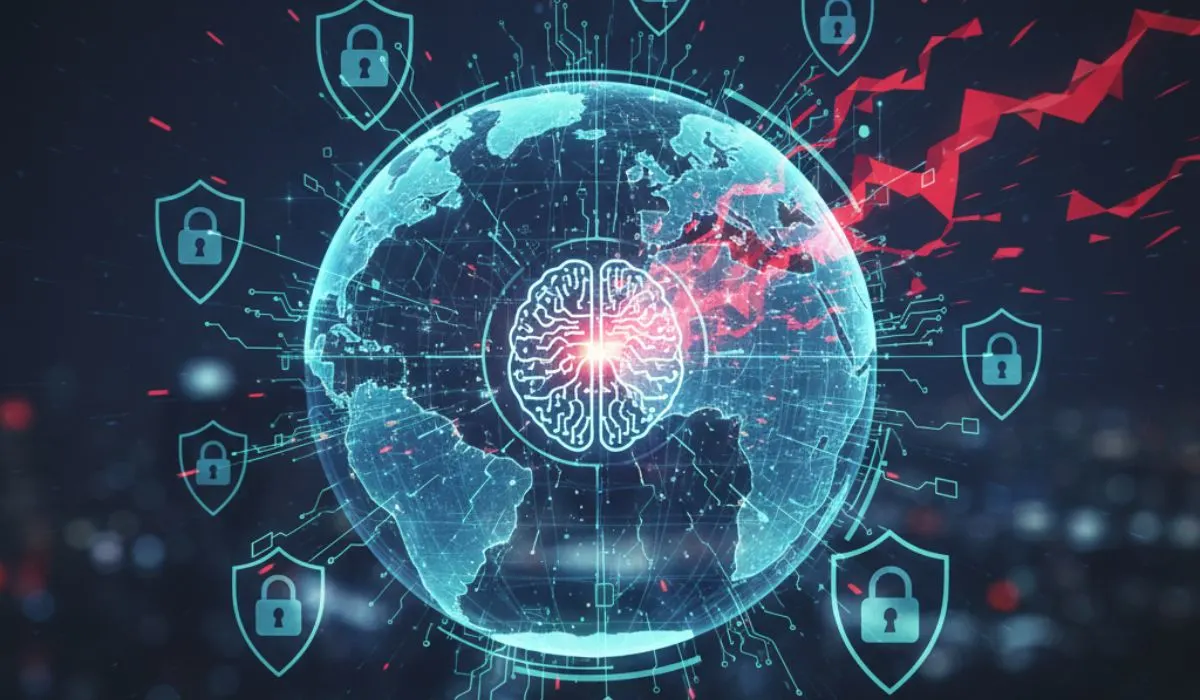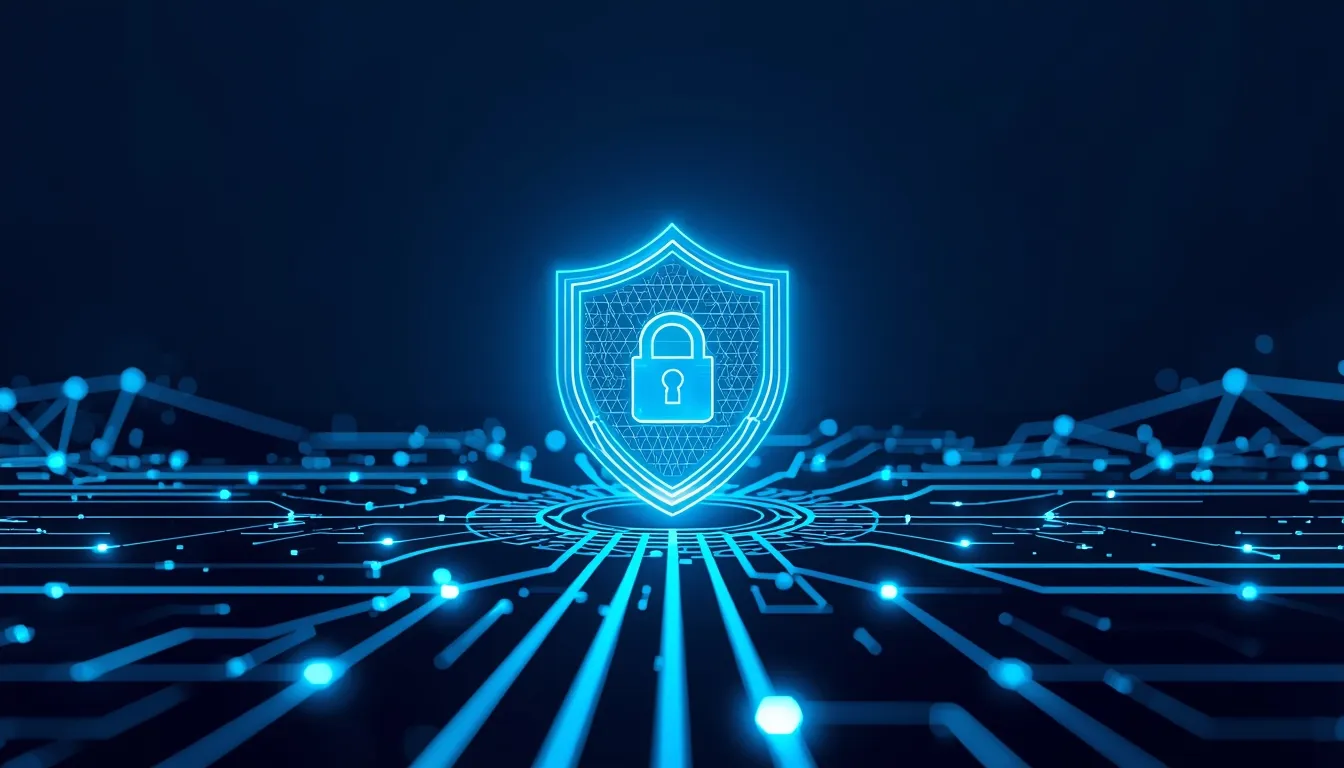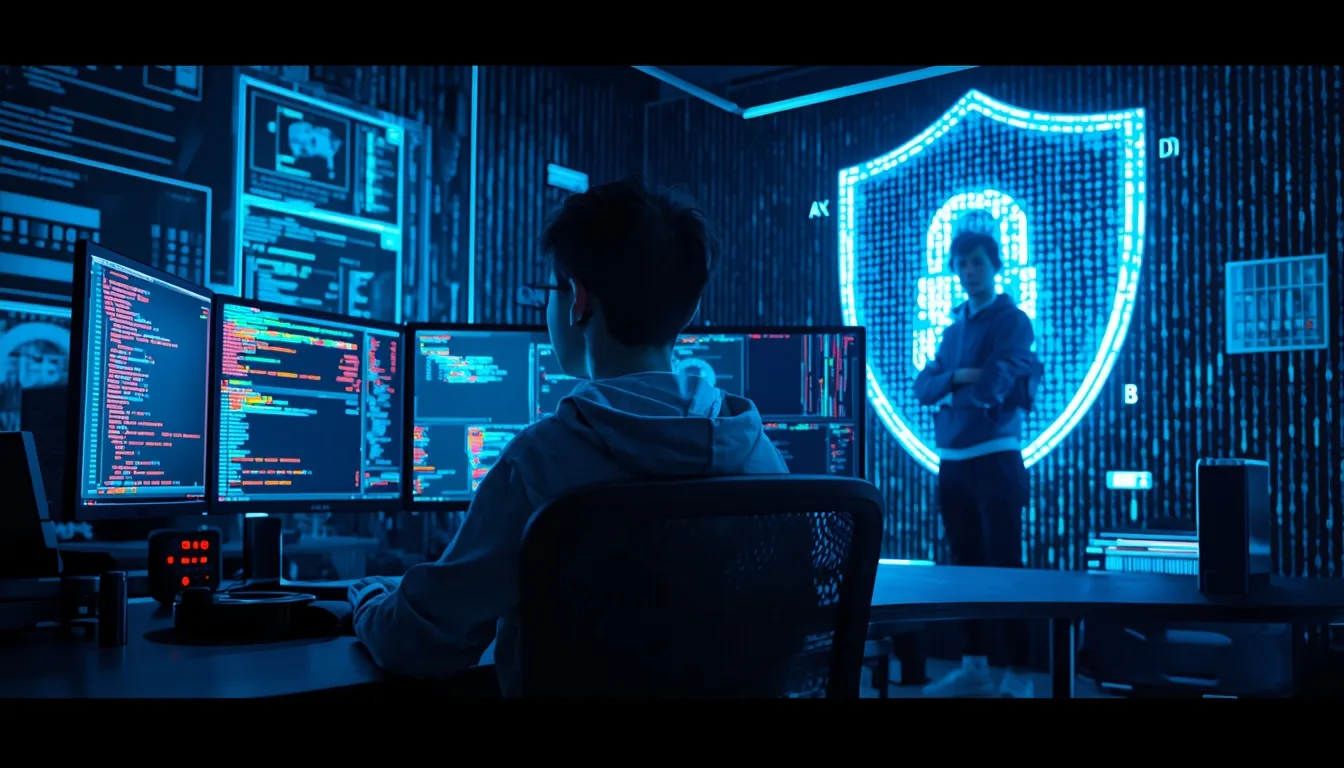
Each year in October, individuals celebrate "Cybersecurity Awareness Month". It is a time to learn how to remain secure online. Cybersecurity implies ensuring computers, phones, and information from terrible individuals who attempt to take or hurt them. The web is a enormous portion of our lives — for think about, work, shopping, or fun.
But it too has dangers. Programmers can take individual information, passwords, or money.
So, it is critical to know how to be secure online.
Here are basic and fun thoughts to offer assistance everybody — kids, understudies, laborers, and families — learn more almost online security amid "Cybersecurity Awareness Month".
1. Begin with Awareness
The first step is to know the risks.
Many individuals still do not get it what cybersecurity means.
You can begin little by spreading mindfulness in your school, domestic, or office.
Ideas:
- Put up blurbs approximately solid passwords and secure browsing.
- Share brief recordings that educate online security tips.
- Talk almost real-life stories of online tricks or hacks.
- Create fun tests for almost web safety.
When individuals know the essentials, they can ensure themselves better.
2. Instruct Watchword Safety
Passwords keep your accounts safe.
A frail secret word is like clearing out your entryway open.
During Cybersecurity Month, instruct everybody to utilize solid passwords.
Simple tips for solid passwords:
- Use at least 12 characters.
- Mix letters, numbers, and symbols.
- Avoid utilizing names, birthdays, or simple words like “password123”.
- Use a distinctive secret word for each account.
- Use a secret word director to keep them in mind safely.
You can make it fun by holding a "Most grounded Secret word Contest".
Ask everybody to make a solid but clever secret word idea.
This makes learning more interesting.
3. Advance Two-Factor Confirmation (2FA)
Even if somebody takes your secret word, 2FA can halt them.
It includes one more step to log in — like a code on your phone.
Encourage everybody to turn on two-factor verification on all their accounts.
Ways to advance 2FA:
- Send a brief how-to direct by email.
- Make a blurb that shows how 2FA works.
- Share updates on social media.
- Hold a “Set Up 2FA” day at work or school.
This little step makes a huge contrast in keeping accounts safe.
4. Organize Cyber Security Workshops
Workshops offer assistance individuals learn through genuine examples.
Invite a cybersecurity master to conversation around common online threats.
They can clarify how programmers work and how to remain safe.
Topics to cover:
- How phishing emails trap people.
- What to do if your phone or tablet is hacked.
- How to secure information on social media.
- Tips for secure online shopping.
Keep it basic and interactive.
You can too play brief recordings or diversions to make it fun.
5. Share Security Tips on Social Media
Social media is the best put to spread mindfulness fast.
During "Cybersecurity Awareness Month", post straightforward every day tips.
Sample posts:
- “Don’t press obscure joins — they may be traps!”
- “Update your phone and apps frequently to remain safe.”
- “Use solid passwords for each account.”
- “Think some time recently you share online.”
Use simple hashtags like #CyberSafe, #OnlineSafety, and #StaySecure.
People cherish brief, accommodating messages they can share.
6. Hold a Cyber Security Challenge

People learn best when they have fun.
Plan a Cyber Security Challenge Week for your group or class.
Ideas for the challenge:
Day 1: Make a solid password.
Day 2: Turn on 2FA for all accounts.
Day 3: Discover phishing signs in fake emails.
Day 4: Overhaul all gadgets and apps.
Day 5: Share one cyber tip with friends.
Give little prizes to those who total all tasks.
This keeps individuals energized and learning at the same time.
7. Celebrate “Update Your Devices” Day
Many individuals overlook computer program updates.
But upgrades settle bugs and near security holes.
Make a fun occasion called “Update Your Gadgets Day”.
How to do it:
- Remind everybody to overhaul their phones, portable workstations, and browsers.
- Share a basic direct on how to check for updates.
- Set up a offer assistance work area for anybody who needs assistance.
This occasion makes a difference secure everybody from known cyber threats.
8. Teach Kids and Teens
Children too utilize the web for recreations and studies.
They require to learn online security early.
Ways to instruct kids:
- Show cartoons or stories around online safety.
- Play recreations that educate watchword safety.
- Talk about what is secure or hazardous to share online.
- Teach them to inquire guardians some time recently downloading apps or clicking links.
Parents and instructors ought to direct them gently.
Simple lessons can spare kids from online inconvenience later.
9. Make Blurbs and Infographics
Visuals are powerful.
Create colorful blurbs or infographics that appear basic cyber tips.
Ideas for posters:
- “Think Some time recently You Click.”
- “Keep Your Watchword Secret.”
- “Don’t Share As well Much Online.”
- “Update. Secure. Remain Safe.”
Hang them in workplaces, schools, or community centers.
You can moreover share them online to reach more people.
10. Play Cybersecurity Games
Learning can be fun through games.
Make or discover straightforward online recreations around cybersecurity.
Examples:
- A test diversion on phishing vs genuine emails.
- A “spot the scam” challenge.
- A confuse around making solid passwords.
- A coordinating amusement for secure vs hazardous activities online.
Games offer assistance individuals keep in mind lessons better.
11. Conduct a “Phishing Test”
Phishing emails are fake messages that attempt to take your info.
You can test your team’s sharpness with a taunt phishing test.
Steps:
- Send fake but safe test emails.
- See who clicks the fake link.
- Teach them how to spot signs like spelling mistakes or unusual links.
This makes a difference individuals learn from botches safely.
12. Celebrate “Cyber Saint of the Month”
Appreciation spurs people.
Create a Cyber Legend Grant for somebody who takes after best security practices.
They can be:
- The individual who reports a fake email.
- Someone who makes a difference others turn on 2FA.
- A understudy who educates companions almost online safety.
Give a little blessing or certificate.
It energizes others to take after great propensities too.
13. Incorporate Cyber Security in Morning Meetings
If you work in an office or school, include brief cyber tips to every day meetings.
It takes as it were one diminutive but keeps security beat of mind.
Example:
“Today’s tip: Don’t share your work records on individual drives.”
Small updates each day can avoid enormous issues later.
14. Run a Cyber Security Quiz

Quizzes test information in a fun way.
Host a brief test for understudies or employees.
Sample topics:
- Password safety
- Phishing tricks
- Safe social media use
- Online shopping safety
You can utilize online test instruments like Kahoot or Google Forms.
Winners can get straightforward prizes like stickers or certificates.
15. Share Real-Life Cyber Stories
- Stories get attention.
- Share genuine stories of cyber wrongdoings and how individuals halted them.
- You can discover illustrations online or from experts.
- Explain what botches happened and how to dodge them.
- Real stories make lessons more capable and memorable.
16. Make a “Stay Secure Online” Pledge
Ask everybody to take a brief online security pledge.
This makes a difference when they keep in mind their guarantee to remain secure.
Example pledge:
- I will utilize solid passwords.
- I will not share individual information online.
- I will check joins some time recently clicking.
- I will remain caution and remain safe.
You can print the vow and put it on dividers or desks.
17. Have Master Talks
- Invite cybersecurity specialists for brief talks.
- They can clarify modern online dangers in simple words.
- Let individuals inquire about safety.
- You can hold it in individual or online.
- Hearing from specialists makes a difference to construct belief and knowledge.
18. Conclusion the Month with a Security Recap
At the conclusion of "Cybersecurity Awareness Month", do a brief recap session.
Talk about:
- What everybody learned.
- Which tips were most useful.
- What can be done superior following time.
Give everybody a “Cyber Security Certificate” for participation.
It’s a decent way to celebrate learning together.
Read More:- Comprehensive Cybersecurity Solutions for Network Security
Conclusion
"Cybersecurity Awareness Month" is approximately learning and sharing secure propensities online.
Everyone — from kids to grown-ups — can connect in little ways.
Remember these brilliant rules:
- Use solid passwords.
- Turn on two-factor authentication.
- Think some time recently you click.
- Keep gadgets updated.
- Share what you learn with others.
By working together, we can make the web more secure for everyone.
Stay keen. Remain caution. Remain cyber safe.
FAQ's
Q1. What is "Cybersecurity Awareness Month"?
It is a campaign held each October to educate individuals how to remain secure online.
Q2. Why is cybersecurity important?
It ensures individual information, cash, and protection from programmers and scams.
Q3. Who can connect "Cybersecurity Awareness Month"?
Everyone — understudies, specialists, guardians, and businesses.
Q4. What are straightforward ways to remain secure online?
Use solid passwords, turn on 2FA, upgrade gadgets, and maintain a strategic distance from clicking obscure links.
Q5. How can schools take part?
Schools can hold blurb challenges, tests, workshops, and fun recreations almost cyber security.










